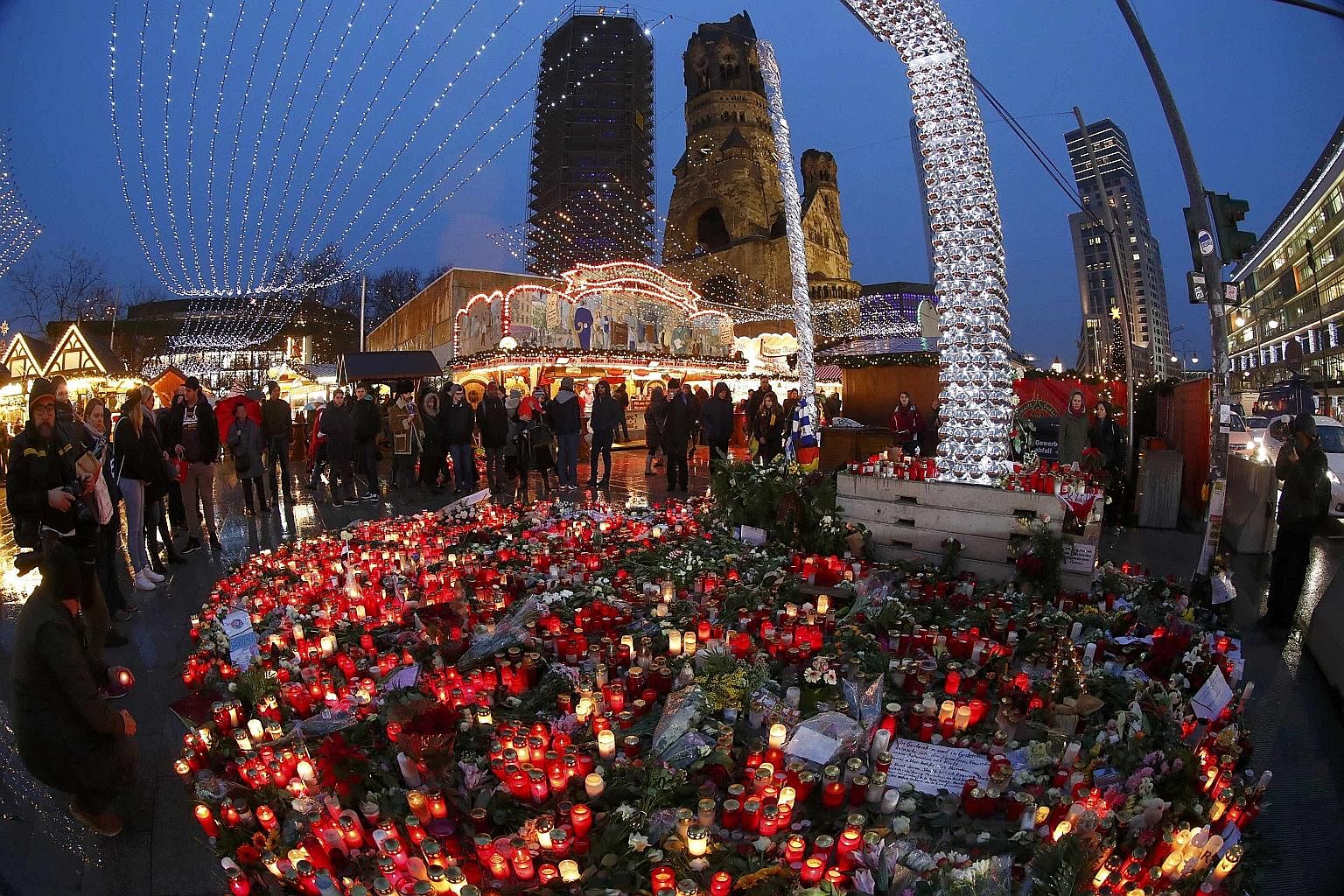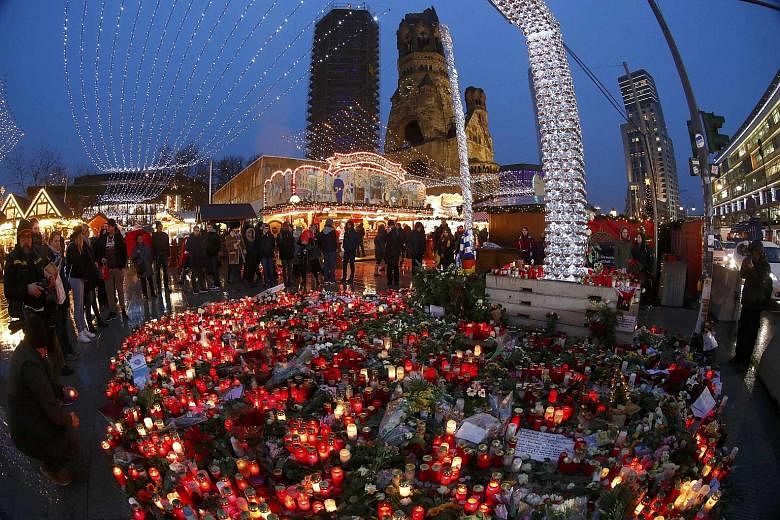The story of Anis Amri, the man who carried out the Dec 19 terror attack in Berlin, shows clearly that Europe, and Germany in particular, isn't letting in too many migrants - it's kicking out too few.
Amri, with a history of violence, drug dealing and other crimes - including a truck theft - left Tunisia in 2011, during the country's Arab Spring revolution. The country's economy had come to a standstill because of the disturbances and Europe's financial crisis, which undermined tourism. At the same time, border controls all but disappeared, so irregular migration to Europe spiked.
When Amri reached Italy, he continued his career as a petty criminal, earning a four-year prison sentence. After his release last year to a deportation centre, the Italian authorities waited for Tunisia to recognise his citizenship and issue a passport. The answer didn't come in the allocated time, and Italy released Amri with orders to leave the country. He went to Germany: July 2015 was a good time to get lost among the throngs of refugees then pouring across the border. Many didn't have valid identity papers, and Amri could start a new life by joining those filing asylum applications.
This entitled him to €392 (S$590) a month in cash. The German migration service was flooded with applications, and waiting times were long. By the time Amri was denied refugee status in June this year, he was under surveillance on suspicion of terrorist ties and selling soft drugs in Berlin. Amri should have been deported immediately; but Tunisia denied he was its citizen. It issued his passport only last Wednesday - after the truck attack on a Christmas market in Berlin.
Immigrants from poor and violent countries brave enough to make the long, dangerous journey to Europe generally deserve a chance. Not all can make good use of it, though. Amri, with no education, no desire to learn or work and a tendency to break rules, did not belong in Europe and should have been kicked out at several points in his squalid sojourn here. But he wasn't because the system isn't designed to handle cases like his.
The German bureaucracy has done a stellar job of reducing the asylum application backlog, but it hasn't demonstrated similar efficiency in deporting those deemed ineligible. It processed 616,000 applications from January through last month, 160 per cent more than in the same period last year. But the 23,750 deportations in that period is an increase of just 14 per cent over last year. With another 51,243 taking advantage of voluntary repatriation programmes, compared with about 35,000 last year, about 215,000 rejected asylum seekers are still living in Germany. And that number will jump.

Earlier this month, consulting firm McKinsey submitted a report to Germany's Federal Office for Migration and Refugees, entitled Return Management 2017, predicting that the number of people ordered to leave but still in Germany will grow to 485,000 by the end of next year. McKinsey says immigrants stuck around for an average of 12 months after being told to leave, while the deportation process after a criminal conviction takes 20 months.
-
616k
Number of asylum applications the German bureaucracy processed from January through November.
23.7k
Number of deportations within that period.
215k
Number of rejected asylum seekers still living in Germany.
The longer Europe's rejects overstay their welcome, the more embittered and susceptible to Islamic State in Iraq and Syria recruiters' whisperings they become. Amri probably wasn't a terrorist when he arrived in Italy from Tunisia, otherwise he would have acted much earlier. His radicalisation must have happened while he was in Europe, in limbo.
McKinsey advised Germany to improve cooperation between states in rounding up deportees, set up special detention centres and offer stronger financial incentives than just a ticket home to encourage voluntary repatriation - a worthwhile investment, given that each rejected applicant costs Germany €670 a month, according to McKinsey. But none of this will help unless Germany and its neighbours work out better return mechanisms with the immigrants' countries of origin. Fixing this requires a major diplomatic effort to produce efficient repatriation procedures with the dozen or so countries responsible for the bulk of the immigrants.
European governments are humane; they cannot just put people in boats and push them off towards Turkey or North Africa, the way Spain did with 17th-century Moriscos. But that hardly justifies the management failure of being unable to deport convicted criminals and repatriate rejects.
German Chancellor Angela Merkel doesn't need to apologise for letting people try their luck in her country. She does, however, have a responsibility to make sure that those with no respect for rules cannot stay. McKinsey is criticised in Germany for charging millions of euros for its advice - but the expense is justifiable if it forces bureaucrats and politicians to resolve the issue.
BLOOMBERG VIEW

